A trust is created by the “settlor”, who provides the assets of the trust. The legal title to the trust assets is held by a “trustee”. The trustee holds the assets for the benefit of the “beneficiary” of the trust. Many trusts are intentionally created by settlors to achieve specific purposes. Some of the most common include “testamentary” trusts created by wills, “alter ego” trusts created to reduce potential tax liabilities and “disability” trusts created to maintain eligibility for government benefits. These types of trusts are usually created by a written document called a “trust deed”, “trust agreement” or “trust settlement” that is signed by both the settlor and the trustee. This document will detail the duties and powers of the trustee. It will also define the rules that determine how the beneficiary will have access to, or receive payments from, the trust assets.
Certain types of trusts do not, however, have to be written down on paper to be legally recognized. A transaction involving an exchange of value (such as money or land) between people that results in the “unjust enrichment” of the recipient may create a “resulting trust” or a “constructive trust”. A resulting trust can be imposed by a Court over the property (often land or money) that one person has received from another in circumstances where the recipient of the property cannot prove that he received the property either as a gift or because he paid for it. In such a case, the Court will declare that the recipient holds the property in trust for the other person. Similarly, the Court may declare that a constructive trust exists over property that has one legal owner but another person has contributed either financially or through their labour to the property’s improvement. An interesting example of a recent case in which the Supreme Court of British Columbia declared a resulting trust over funds received from a woman shortly before she died is Young Estate v Szabo, (2015) BCSC 388.[1]
What are the Duties of a Trustee?
A trustee who holds the property “in trust” for a beneficiary has the duty of protecting and managing the property and distributing the property to the beneficiary in accordance with the trust agreement and the law. A trustee owes a “fiduciary” duty to the beneficiary of the trust which means that the trustee must not act in a manner that conflicts with the interests of the beneficiary. Generally, in managing the assets of the trust, a trustee is held to the standard of a reasonably prudent person administering their own affairs. However, when investing the trust assets, a trustee is held to the standard of a “reasonably prudent investor”. A trustee also a duty to keep an accurate account of the trust property and transactions involving that property and have those accounts approved by the beneficiary on a regular basis.
Claims Against Trustees/Passing of Trustee Accounts
If a trustee fails to act in accordance with his or her duties, he or she can be sued for breach of trust and can also possibly be removed as a trustee of the trust by an order of the Court.[2] And if the beneficiary of the trust does not approve the trustee’s accounts, those accounts must be reviewed and “passed” before a court official called a registrar[3]. If a resulting or constructive trust has been declared to exist over certain property by the Court, the trustee is typically ordered to return the property (or its value in money) to the beneficiary.
Contact a Vancouver trusts dispute lawyer today to discuss your case
Trustees and beneficiaries of trusts have important duties and rights. A trustee or beneficiary who is involved in a dispute involving a trust should talk to a lawyer about their rights and possible remedies to their problem. Similarly, anyone who has transferred a substantial asset who believes that the asset should still belong to them should seek advice as to whether they have a claim to a resulting trust or a constructive trust. At McLarty Wolf Litigation Lawyers, we work closely with our clients in order to ensure that we understand their goals and fulfill their legal needs. To schedule a consultation with one of our lawyers, call our Vancouver office today at 604-687-2277.





You must be logged in to post a comment.